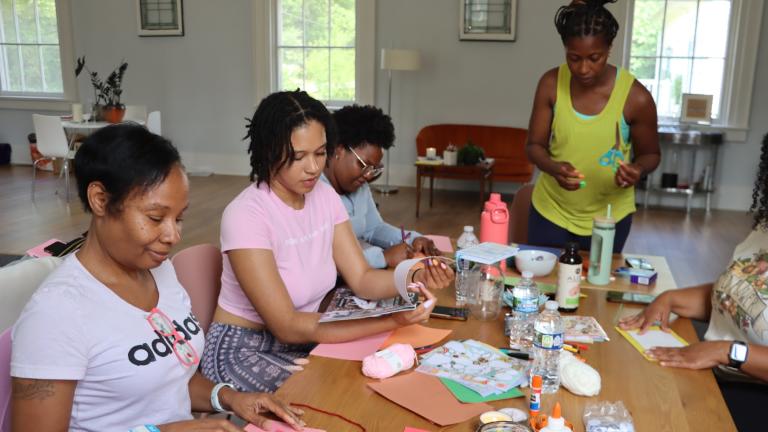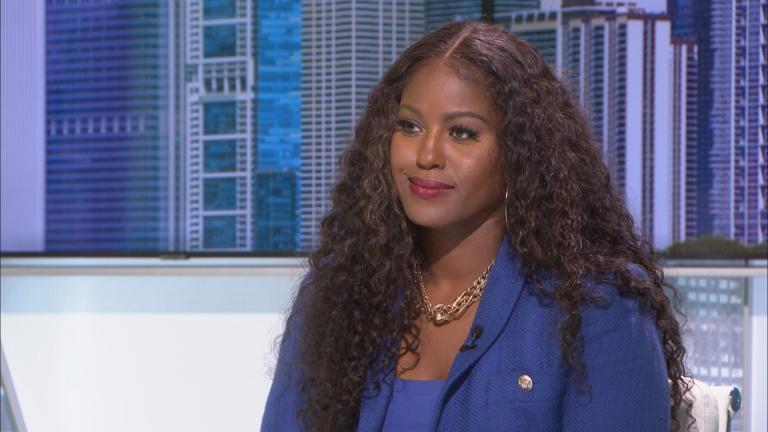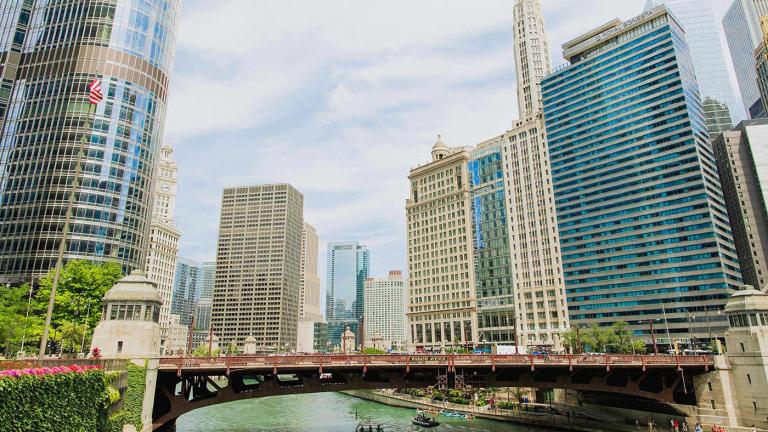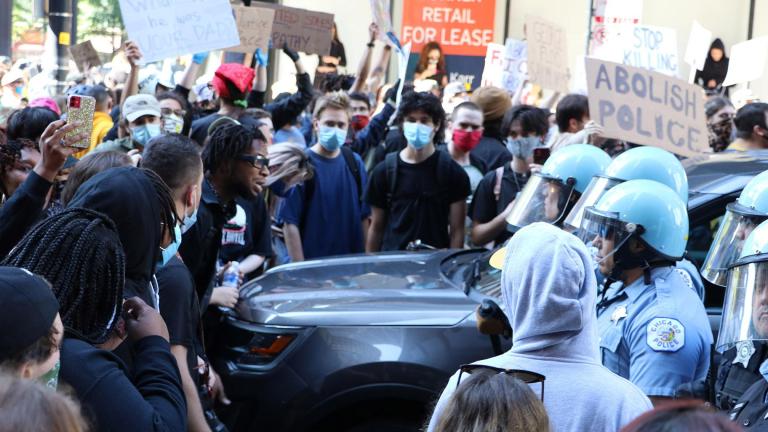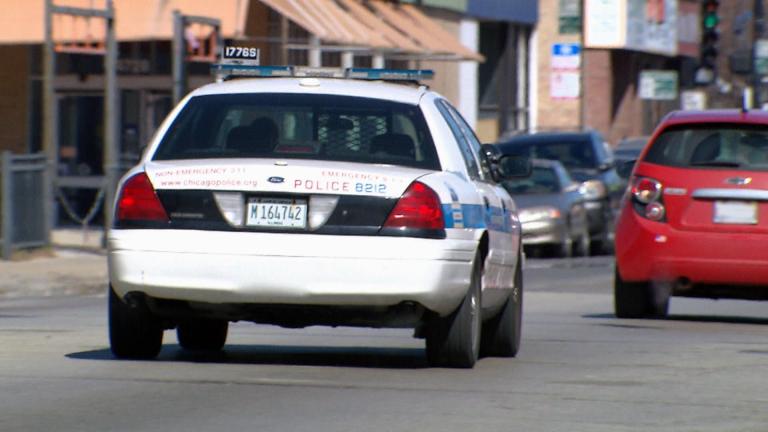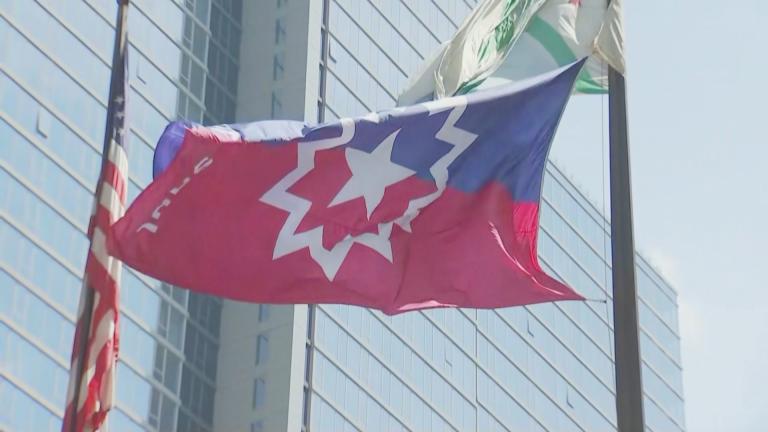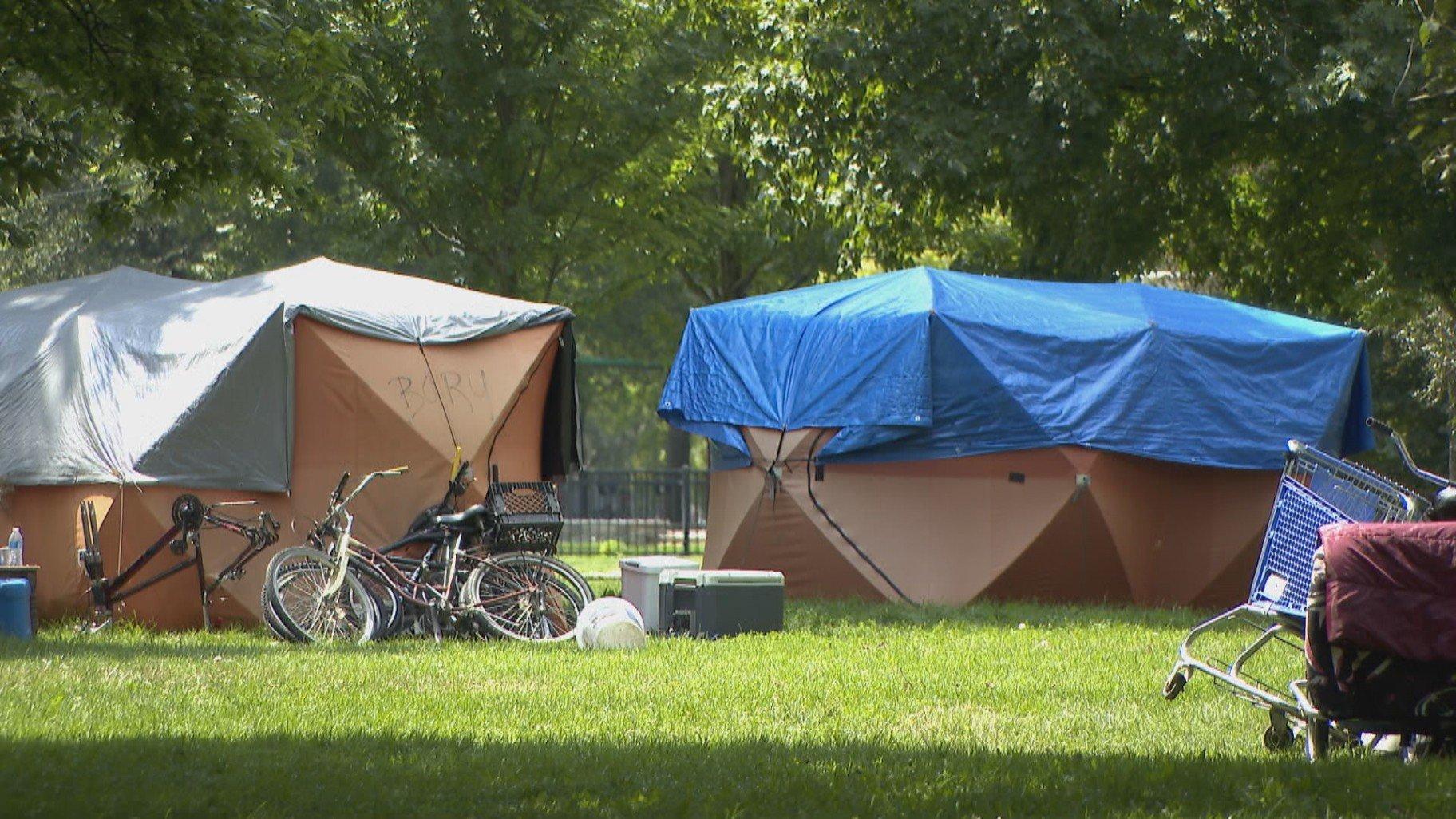 A homeless encampment in Humboldt Park. (WTTW News)
A homeless encampment in Humboldt Park. (WTTW News)
A coalition of real estate groups took one last swing Monday at knocking a measure that would give the Chicago City Council the power to hike taxes on the sales of properties worth $1 million or more to fight homelessness off the March 19 ballot.
A coalition of the real estate and development groups asked the Illinois Supreme Court to reverse an appellate court ruling that overturned a decision by Cook County Judge Kathleen Burke that blocked the Chicago Board of Elections from counting votes for and against the proposal, known as Bring Chicago Home.
“The referendum question is misleading and manipulative, and we believe it is important to see this through,” Farzin Parang, the executive director of the Building Owners and Managers Association of Chicago, said in a statement. “The Appellate Court’s opinion implies that an illegal referendum cannot be challenged until after an election — after voters have already been harmed.”
“The holding of an election for the purpose of passing a referendum to empower a municipality to adopt an ordinance is a step in the legislative process of the enactment of that ordinance,” according to the appellate court opinion. “Courts do not, and cannot, interfere with the legislative process.”
Maxica Williams, chair of the End Homelessness Ballot Initiative Committee and president of the Chicago Coalition for the Homeless board, said “the real estate lobby continues its efforts to silence Chicago voters on a popular referendum to address a housing crisis they have created and benefit from–all while 68,000 people have no stable place to stay.”
The unanimous appellate court opinion blasted Burke’s decision to side with the real estate and development groups that sued the Chicago Board of Election Commissioners to block the ballot measure. That lawsuit claimed the measure improperly asked voters to decide three issues, when state law limits ballot measures to only one question.
The Building Owners and Managers Association of Chicago and other opponents have warned that hiking the city’s Real Estate Transfer Tax could cause the city’s already-struggling commercial real estate market to collapse amid the shift to remote work.
The Chicago City Council voted 32-17 in November to put the measure to voters.
The last time Chicago voters passed a binding referendum that applied to the entire city was 1885, when they voted to create the Chicago Board of Election Commissioners, according to city records.
Mayor Brandon Johnson and other supporters of the proposal said city officials have a moral obligation to house as many vulnerable Chicagoans as possible to confront the growing number of unhoused residents while ensuring wealthy residents of Chicago pay their fair share.
The proposal would slash the real estate transfer tax paid by Chicagoans who sell residential and commercial properties for less than $1 million by 20%, while hiking taxes on transactions of more than $1 million by as much as 400%.
That would generate approximately $100 million annually, which supporters say would be enough to address the root causes of homelessness by building new permanent housing that offers wraparound services like substance abuse counseling in an effort to combat crime and poverty throughout Chicago.
An August report from the Chicago Coalition of the Homeless, a member of the coalition that crafted the Bring Chicago Home proposal, found that the number of Chicagoans who do not have a permanent home grew 4% between 2020 and 2021, to 68,440 people.
State law does not give the City Council the power to change the transfer tax on its own authority. Without legislation passed by the General Assembly and signed by the governor, the measure needs the support of Chicago voters through a referendum before the City Council can levy the tax and collect the funds.
Under the current law, the buyer of a home worth $300,000 pays the same flat transfer tax as the buyer of a multimillion-dollar mansion or downtown skyscraper — a fact that supporters of the change contend is unfair and contributes to income inequality in Chicago.
The seller of a home sold for $500,000 now pays $3,750 in real estate transfer taxes, a 0.75% tax rate. If voters were to pass the binding referendum on the primary ballot, and the City Council were to agree to levy the tax, that cost would drop to $3,000, or a 0.60% tax rate, officials said.
Nearly 94% of all properties sold in Chicago have a final purchase price of less than $1 million, officials said.
The transfer tax on properties sold for more than $1 million would spike by 233%, but apply to just the amount of the sale greater than $1 million, in an effort to ensure the measure withstands a legal challenge and reduces the incentive for sellers to artificially lower sale prices, according to the proposal.
For example, the seller of a property that sells for $1.2 million now pays $9,000 in transfer taxes. Under the revised proposal, that would rise to $10,000, with the higher tax rate of 2% applied to just $200,000 of the sale price, according to the proposal.
Using the same mechanism, the transfer tax on properties sold for more than $1.5 million would spike by 400% with the increase only applying to the amount of the sale greater than $1.5 million, according to the proposal.
Contact Heather Cherone: @HeatherCherone | (773) 569-1863 | [email protected]

